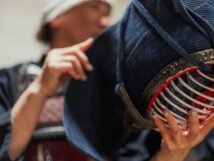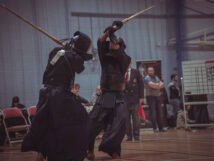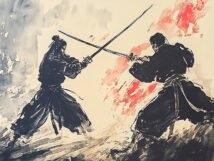Introduction to the Villari Martial Arts System
The Villari Martial Arts System is a comprehensive martial arts system that was founded by Fred Villari in the 1960s. Villari was a student of several different martial arts styles, including karate, kung fu, and jiu-jitsu, and he combined elements from these styles to create his own unique system. The Villari system focuses on practical self-defense techniques, as well as physical fitness, mental discipline, and personal growth.
The principles and techniques of the Villari system are based on the concept of "total body martial arts." This means that practitioners are trained to use their entire body in their movements and techniques, rather than relying solely on their arms or legs. The system also emphasizes the importance of balance, coordination, and flexibility, as well as mental focus and discipline.
The Importance of Setting Goals in Martial Arts
Setting goals is an important aspect of martial arts training, as it provides motivation and direction for practitioners. By setting both short-term and long-term goals, martial artists can track their progress and stay motivated to continue training.
Short-term goals in martial arts may include mastering a specific technique, improving flexibility, or increasing strength and endurance. These goals can be achieved relatively quickly, providing a sense of accomplishment and motivation to continue training.
Long-term goals in martial arts often revolve around achieving higher belt ranks or mastering more advanced techniques. These goals require consistent training and dedication over a longer period of time. By setting these long-term goals, martial artists have something to strive for and can measure their progress along the way.
The Early Stages of Training: White to Yellow Belt
The early stages of training in the Villari system, from white to yellow belt, focus on building a strong foundation of basic techniques and movements. Practitioners learn fundamental strikes, kicks, blocks, and stances, as well as basic self-defense techniques.
This stage of training is crucial, as it lays the groundwork for more advanced techniques and movements. By mastering the basics, martial artists develop a solid foundation of skills and techniques that they can build upon as they progress through the ranks.
The beginner stage of training can be challenging, as practitioners are often learning new movements and techniques for the first time. However, it is also a rewarding stage, as progress is often noticeable and there is a sense of accomplishment in mastering new skills.
Advancing to the Intermediate Levels: Orange to Blue Belt
As martial artists progress to the intermediate levels of training, from orange to blue belt, they begin to learn more complex techniques and combinations. This stage of training focuses on developing speed, power, and fluidity in movements.
Consistency and practice are key during this stage, as practitioners must continue to refine their techniques and build upon their foundation. By consistently practicing and refining their skills, martial artists can continue to progress and improve.
The intermediate stage of training can be challenging, as practitioners are pushed to their limits physically and mentally. However, it is also a stage of growth and development, as martial artists begin to see the results of their hard work and dedication.
The Challenges of Reaching the Advanced Levels: Purple to Brown Belt
Reaching the advanced levels of training in the Villari system, from purple to brown belt, presents its own set of challenges. At this stage, practitioners focus on refining their techniques and mastering forms, which are pre-arranged sequences of movements.
The advanced levels require a high level of mental and physical discipline. Practitioners must push themselves to their limits and overcome mental and physical obstacles in order to progress. Perseverance and dedication are crucial during this stage, as progress may be slower and more challenging.
Despite the challenges, reaching the advanced levels of training is a significant achievement. It demonstrates a high level of skill, discipline, and dedication, and prepares martial artists for the ultimate goal of achieving black belt status.
Preparing for the Ultimate Goal: Achieving Black Belt Status
Achieving black belt status is the ultimate goal for many martial artists in the Villari system. It represents mastery of the system and a high level of skill, discipline, and dedication.
To achieve black belt status, practitioners must meet certain requirements set by their instructors. These requirements often include demonstrating proficiency in a wide range of techniques, forms, and self-defense applications, as well as showing a strong understanding of the principles and philosophy of the Villari system.
Preparing for black belt requires both mental and physical preparation. Practitioners must develop mental focus, discipline, and perseverance, as well as physical strength, endurance, and flexibility. It is a challenging journey, but one that is highly rewarding and transformative.
The Physical and Mental Benefits of Martial Arts Training
Martial arts training in the Villari system offers a wide range of physical and mental benefits. The physical aspect of training improves overall fitness, strength, flexibility, and coordination. Regular training can lead to weight loss, increased muscle tone, and improved cardiovascular health.
In addition to the physical benefits, martial arts training also provides mental and emotional benefits. The discipline and focus required in training can help improve concentration and mental clarity. Martial arts training also promotes self-discipline, self-control, and self-confidence, which can carry over into other areas of life.
Furthermore, martial arts training provides an outlet for stress relief and can improve overall mental well-being. The physical activity and mental focus required in training can help reduce stress and anxiety, and promote a sense of calm and relaxation.
The Role of Discipline and Focus in the Villari Martial Arts System
Discipline and focus are fundamental principles in the Villari Martial Arts System. In training, practitioners are taught to be disciplined in their practice, showing up consistently and putting in the effort required to improve. They are also taught to be focused, paying attention to details and staying present in the moment.
Discipline and focus are not only emphasized in training, but also in daily life. The principles learned in martial arts can be applied to other areas of life, such as work, school, and personal relationships. By practicing discipline and focus in all aspects of life, individuals can achieve greater success and fulfillment.
The Importance of Consistency and Perseverance in the Journey to Black Belt
Consistency and perseverance are key to progress in the Villari Martial Arts System. Consistent training allows practitioners to build upon their skills and techniques, and to continue progressing through the ranks. Perseverance is necessary to overcome challenges and setbacks along the way.
Consistency and perseverance are not only important in training, but also in life. By consistently working towards their goals and persevering through obstacles, individuals can achieve success and personal growth. The journey to black belt requires dedication and commitment, and those who are consistent and persevere are more likely to achieve their goals.
Life After Achieving Black Belt: Continuing the Path of Martial Arts Mastery
Achieving black belt status is not the end of the journey in the Villari Martial Arts System, but rather the beginning of a new chapter. Black belts have the opportunity to continue their learning and growth, and to further develop their skills and knowledge.
Black belts often become instructors, sharing their knowledge and experience with others. They may also continue to train and compete in martial arts tournaments, further honing their skills and pushing themselves to new levels of excellence.
The lifelong benefits of martial arts training extend beyond the physical and mental aspects. Martial arts training instills values such as respect, discipline, and perseverance, which can positively impact all areas of life. The skills and principles learned in martial arts can be applied to personal and professional relationships, and can contribute to overall success and happiness.
Conclusion:
The Villari Martial Arts System offers a comprehensive and holistic approach to martial arts training. From the early stages of training to the ultimate goal of achieving black belt status, practitioners are challenged physically and mentally, and are provided with opportunities for growth and personal development.
By setting goals, maintaining discipline and focus, and persevering through challenges, martial artists can progress through the ranks and achieve their goals. The physical and mental benefits of martial arts training are numerous, and extend beyond the training mat into all areas of life.
Whether you are just starting your martial arts journey or are already on the path to black belt, the Villari Martial Arts System offers a supportive and empowering environment for growth and self-improvement. So, take the first step and embark on this transformative journey today.















